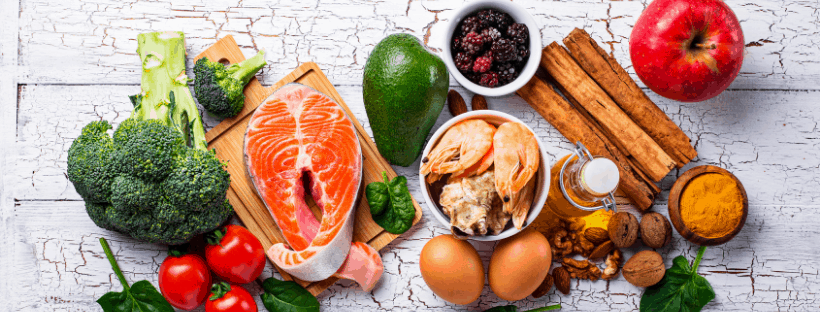The Egg Nutrition Center partnered with Jessica Ivey, RDN, LDN to write this blog post.
June is Alzheimer’s & Brain Awareness Month, making it the perfect time to consider the importance of brain health. With increased concern about brain diseases, researchers in the growing field of neuronutrition are examining how foods affect the health of our brains and scientists working on the 2020 Dietary Guidelines for Americans are evaluating how nutrition impacts neurocognitive health throughout the lifespan. Eggs are a key part of this research because they contain choline and lutein, two nutrients that are important for brain development, memory and learning.
Choline plays a critical role in brain development and health during fetal development and throughout the lifespan. In utero, choline helps the baby’s brain and spinal cord develop properly. Choline is an essential nutrient, meaning that our bodies can’t produce it in sufficient amounts so we have to get it in our diets.
Approximately 90% of Americans fall short of the recommended intake of choline,1 and intake declines with age. Adults age 71 and older consume on average about half their daily requirement of choline.2 Low concentrations of free choline in the blood have been associated with poor cognitive performance in older adults,3 indicating that a focus on increasing choline intake at this stage of life could have potential benefits.
Lutein is a carotenoid and is sometimes referred to as the “eye vitamin” due to its role in eye health. In addition to being good for your vision, higher brain and serum concentrations of lutein have been associated with better cognitive function in older adults.4
Eggs have both of these nutrients, and regular consumption of eggs has been associated with improved cognitive performance in adults.5 Be sure to enjoy the whole egg, including the yolk, where choline and lutein are found. Eggs are one of the best food sources of choline, with two large eggs providing about 300 mg of choline. Pair eggs with other nutritious foods, like vegetables and whole grains, to build balanced meals to fuel your body and brain.
Try these nutrient-packed recipes:
Jessica Ivey, RDN, LDN, is a dietitian and chef with a passion for teaching people to eat healthy for a happy and delicious life. Jessica offers approachable healthy living tips, from fast recipes to meal prep guides and ways to enjoy exercise on her website, JessicaIveyRDN.com. Follow her on Facebook and Instagram.
References
- Wallace, TC, Blusztajn, JK, Caudill, MA, Klatt, KC, Natker E, Zeisel, SH, and KM Zelman. Choline The Underconsumed and Underappreciated Essential Nutrient. Nutrition Today. November/December 2018.
- Choline, Memory & Cognitive Development. The Choline Information Council website. http://cholinecouncil.com/consumer/cognitive_development.php. Accessed May 23, 2019.
- Nurk E, Refsum H, Bjelland I, et al. Plasma free choline, betaine and cognitive performance: the Hordaland Health Study. Br J Nutr. 2013;109:511–519.
- Johnson EJ, Vishwanathan R, Johnson MA, et al. Relationship between Serum and Brain Carotenoids, α-Tocopherol, and Retinol Concentrations and Cognitive Performance in the Oldest Old from the Georgia Centenarian Study. J Aging Res. 2013;2013:951786.
- Ylilauri MPT, et al. Association of dietary cholesterol and egg intakes with the risk of incident dementia or Alzheimer disease: The Kuopio Ischaemic Heart Disease Risk Factor Study. Am J Clin Nutr. 2016;105:476-484.

